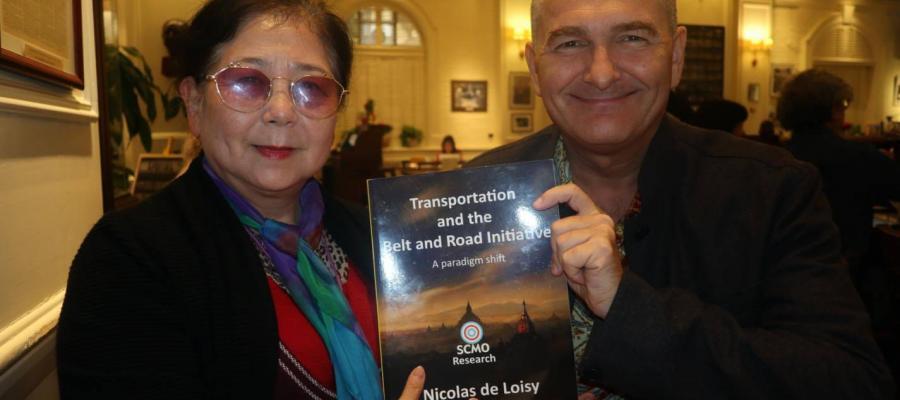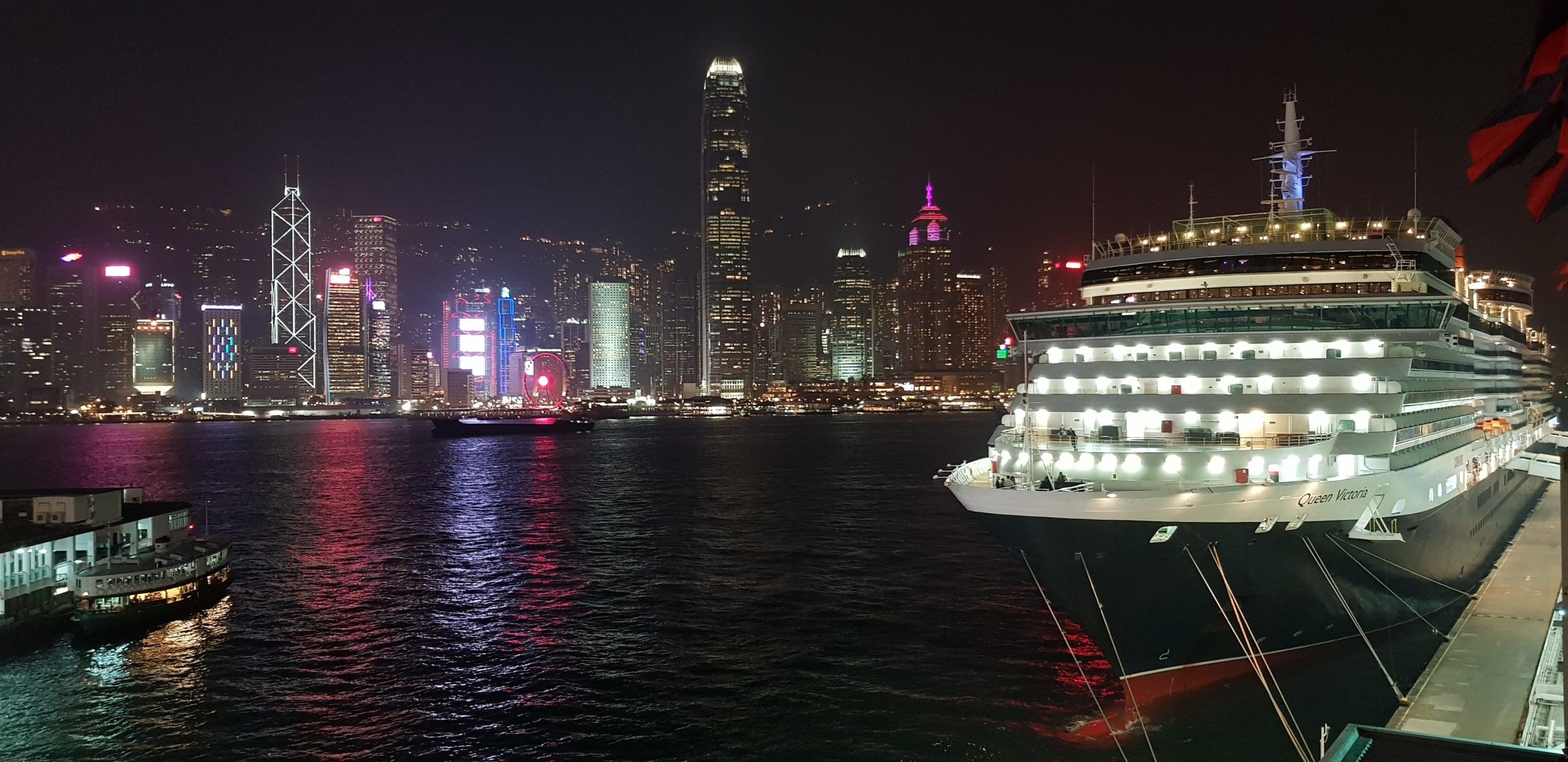Interview with
Mr. Nicolas de Loisy
President

Here is a brief biography of SCMO:
SCMO is a global network of professional firms providing advisory services in logistics, transportation, and supply chain management (www.scmo.net). For over 20 years, our experts have been helping you transform supply chain challenges into strategic and competitive advantages through 40 offices in 25 countries.
We serve businesses such as law firms, private equity funds, chemical and pharmaceutical companies, resource companies, property and infrastructure developers, manufacturing and distribution companies, and transportation companies around the world.
We advise institutions and governments worldwide to establish and implement their transportation, logistics, and supply chain strategies locally, regionally, and globally with respects to a world where the rules-based global order comes under threat of breaking down.
We are the trusted counselor to high-net-worth individuals in mitigating risk, keeping control of their assets’ supply chains, and seizing the opportunities offered by a world that knows growing chaos and confusion.

First of all, Nicolas, please tell our readers about your background in shipping?
As the son of a French military officer, I have lived in Europe, Africa, the Americas, and Asia. I am fluent in French, English, and German, and babble in most languages of Asia, starting with the “bad words”…
After my A-levels, I attended a European business school called the EBS (European Business School) in France, Germany, and the UK, which taught me many subjects, including transportation.
Then, I did third year doctoral studies in France. I focused on the “analysis of economic and financial data in an international context”. In French, it reads “DEA en prospective internationale” (or “how to foresee the future”).
I worked in Europe and Canada for five years, and then I came to Hong Kong 25 years ago.

In Hong Kong, I worked with CMA CGM as a marketing & commercial manager (shipping line), then with CLASQUIN as a sales & marketing manager (freight forwarding). After that, I was a business development manager (freight forwarding) with BIRKART GLOBISTICS (now LOGWIN), and then with GEFCO as a regional business development manager (freight forwarding). My next position was with PARAGON as a managing director (freight forwarding), and then with SCMO as president (advisory services specializing in logistics, transportation, and supply chain management).
I am a fast learner, and my numerous experiences in logistics and shipping taught me a lot commercially and operationally. This is actually the ideal background if you want to become a consultant, and this is what I did, but by founding my own advisory firm. ?
As time goes on, I have more and more speaking engagements along the following subjects:
01. Convergence Singularity (Global ecosystem & sustainability).
02. Belt and Road Initiative (BRI).
03. Transportation & the Belt and Road Initiative (BRI).
04. Any transportation subjects (Logistics).
05. Any logistics subjects (Logistics).
06. Any supply chain subjects (Logistics).
07. Trade wars (Geopolitics & logistics & finance).
08. Introduction to Blockchain (Digital technology).
09. Blockchain in Supply Chain (Digital technology).
10. Railways China/ Europe (Logistics).
11. Mongolia logistics infrastructure (Logistics).
12. Networking mentoring (Social).
Here are the subjects, which I can now also present, following my book’s publication:
13. Global electric grid (Energy).
14. Global oil & gas pipelines (Energy).
15. Expansionism (Geopolitics).
16. Globalization (Politics).
17. Global rail transportation (Logistics).
18. Global maritime transportation (Logistics).
19. Global air transportation (Logistics).
20. Global digital transportation (Logistics & digital technology).
21. Global road transportation (Logistics).

When did you settle in Hong Kong, and when did you decide to publish a book about the Silk Road?
I came to Hong Kong about 25 years ago.
I decided to publish a book about the Belt and Road Initiative at the end of 2018 only. I wrote it in 2 months, had it proofread by peers for 3 months, published it in June 2019, and have been selling it on Amazon since.
The second edition was published in January 2020.
The Chinese edition will be published in March 2020.
I have always been fascinated by the Silk Road and Central Asia in general. I find China’s economic deployment fascinating. I am a transportation expert. The book includes and addresses all three subjects.
Being here at the start of China’s deployment feels like what it must have been to be in the USA, when the far west conquest started (without the American Indian genocide!).
What is your personal opinion about the Silk Road Project of China? Will it lead to increased trade or will it protect mainly Chinese trade along the road?
My opinion is positive and explained in great detail in my book. It is not called the Silk Road project but the Belt and Road Initiative (BRI).
China is pragmatic. China already controlled 24 million km2 of the “known world” of the supercontinent through Genghis Khan during the 13th and 14th centuries. China experienced what it is to manage such an area. China also experienced what it is to lose it. China might have learnt the lessons of that experience. So, China’s deployment this time is very different than what any Western mind can understand, especially American minds, which are very aggressive.
My perception is that the USA and China are complementary and have actually been working hand-in-hand towards deploying globalization, consciously or not. The USA is the globalization stick, with their Pax Americana, which keeps everybody in line with their interests. China is the globalization carrot, with its endless BRI infrastructure investments, which is amazingly inclusive and welcoming to everyone that wants to join.
Following the “emergence theory”, the BRI will lead to increased trade for everyone in the world, especially along the Belt and Road Initiative, which includes China as well, obviously!
What kind of role can Hong Kong play in connection with the Silk Road?
I answered this question fully in a recent BLOOMBERG interview, which you can find at this link:
As you can see in my interview, Hong Kong can wisely position itself in the Belt and Road Initiative, if it chooses to do so. ?
Please tell us more about the book and how to order it?
The Belt and Road Initiative (BRI) has received considerable critical attention from the infrastructure, political and media worlds. Most reports and articles on the subject are confused at best, when they are not completely misinformed or contradictory. To-date, there has been little agreement on the number of BRI projects, amounts spent, dates, and geographical distribution. A global information warfare campaign of misinformation, disinformation, and intoxication is currently at play about the BRI, the direct result of which is to confuse the situation even more.
This book critically examines what China’s BRI is about, clarifies the confusion, and answers many questions. It includes a first-time-ever-published list and statistical tables of all the BRI projects up to December 31st, 2018. A mixed-methods approach was used in the data analysis, and the theory of constraints underpins this research as a theoretical framework. BRI projects are classified by project name, date, status, value, country, region, industry, and transportation mode.
Additional never-before-published tables describe seven transportation modes. These tables are instrumental to our understanding of the BRI and are unpacked and analyzed in great detail in one section of this book. This work also demonstrates how instrumental the BRI is to globalization, which, in itself, is conducive to humanity’s evolution. It describes humanity’s five key chokepoints, and apprehends how China and the BRI are addressing them.
In conclusion, we share an interview with a special Chinese lady, who benefits from a long oversight of China’s history. She shows us the Chinese perception of China and of the world. She tells us what China’s point of view and ambitions are, especially as far as the BRI is concerned.
The book is available in English and Chinese on Amazon, and on our website at www.scmo.net.

What’s next on your agenda bookwise?
I have just published my second book entitled, “The Manual of Networking”, already available on Amazon (tomorrow!).
More books are planned, including a “global maritime study”, about all commercial shipping modes, and possibly another “convergence singularity” book, concerned with sustainability.
How is it best to get in touch with you?
Through my website at www.scmo.net
I answer within 24 hours! ?







